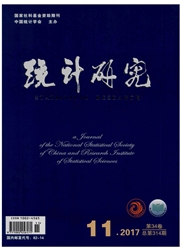

 中文摘要:
中文摘要:
老龄化背景下,中国养老金“并轨”开始启动,低替代率问题逐渐显露。本文借鉴缓冲储备储蓄理论,首次从微观角度基于养老金并轨和替代率两方面研究养老金制度对于家庭消费行为的影响。结论显示,我国养老金“多轨制”和养老金替代率均显著影响居民消费行为。机关事业单位人员比企业及其他人员消费倾向更高;在控制养老金“并轨”问题后,提高养老金替代率有助于刺激城镇居民增加消费支出。这些均对低收入和女性户主家庭更为明显。
 英文摘要:
英文摘要:
With the gradually intensified aging level, the combination of the multi-track is officially launched with extensive focus on the low substitution rate at the same time. First from the micro perspec- tive, this paper applies buffer-stock savings theory and relative empirical analysis to study the effect of pension system on the consumption behavior from two aspects: pension multi-track and substitution. The results both show that China's exist of the pension multi-track and low substitution rate to some extent can both explain consumption behavior. Civil servants and institutional staffs hold higher consumption tenden- cy than enterprise personnel. After controlling the multi-track, improving the pension substitution rate can help stimulate consumption expenditure, especially for those families which have lower income level and female household head.
 同期刊论文项目
同期刊论文项目
 同项目期刊论文
同项目期刊论文
 期刊信息
期刊信息
